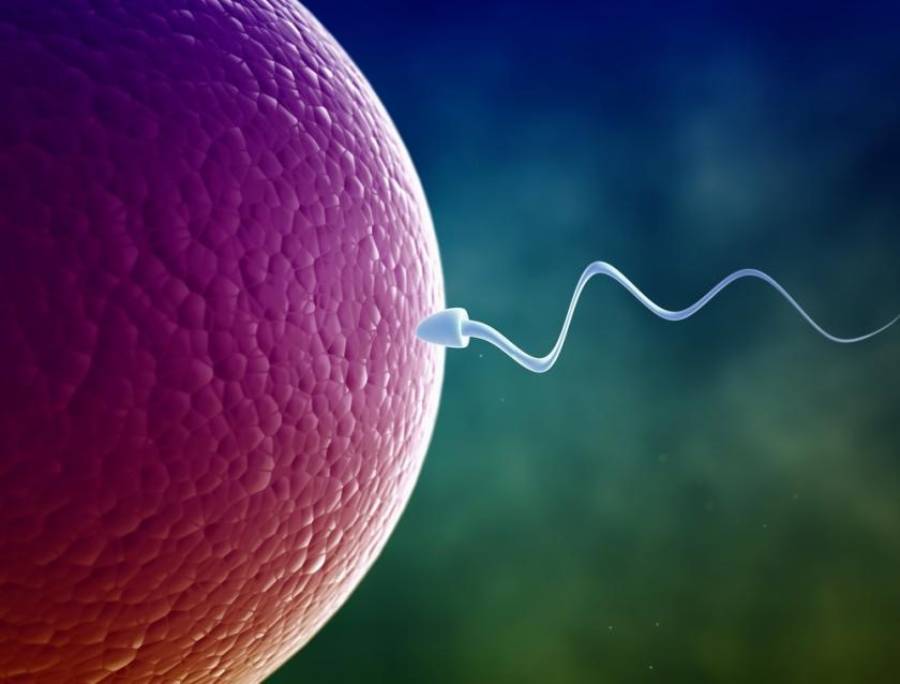
Pharmacist Pioneer Community. Why?
Jul 03 - 2022

Contrary to the popular beliefs that hold women fully responsible for the delay of childbearing, men also have their share of responsibility in many cases. Infertility is a big problem that affects 8-12% of couples worldwide, and males participate in 10-30% of these cases.
Causes of male infertility vary greatly, and they can be related to congenital, acquired, or idiopathic factors that impede proper sperm formation.
That is what will be discussed in detail in this article:
1. What is Male infertility?
2. Signs and symptoms of infertility in men.
3. Causes of infertility in men.
4. Treatment of infertility in men.
5. Tips for preventing infertility in men.
Doctors only resort to the term “infertility” after a year of regular sexual intercourse without any means of contraception, then they will begin the process of searching for the cause of the delayed pregnancy, starting with men first, because of the ease of their examination processes and tests compared to women, and if anything different from normal is found, it shall be treated by the doctor.
Naturally, men are able to produce semen with the required number of healthy sperms (15-200 million sperms per milliliter of semen), that are able to penetrate the egg wall and fertilize it, resulting in bearing of a healthy fetus.
If the sperm quantity is less than 15 million healthy sperms per milliliter of semen, or the total number of healthy sperm is less than 39 million per ejaculation, then the chances of a wife's pregnancy are reduced.
The success of the fertilization process does not depend only on the number of sperms. The 15-200 million sperm per milliliter of semen must be healthy, and move from the testicles where they were made to mix with the semen and go to the penis to be ejaculated during the intercourse, and to be able to move effectively to penetrate the egg and fertilize it.
There are some signs and symptoms a man can encounter that indicate a decline in his fertility as a result of some underlying problems, that may be due to genetic disorders, hormonal imbalance, or as a result to the presence of dilated veins in the testicular area, or due the difficulty in the passage of sperms.
These signs and symptoms include the following
Delayed pregnancy (despite the regular and continuous sexual intercourse, and the physiological wellness of the wife).
Difficulty maintaining an erection.
Difficulty ejaculating.
Ejaculating small amounts of semen.
Low sexual arousal.
Gynecomastia (abnormal growth of the breast).
Lack of facial and body hair (hormonal disorders).
The presence of some bulges or lumps in the testicles.
Feeling of tingling and pain in the testicles or penis.
Infertility in men can occur because of several reasons, including health-related reasons and lifestyle-related ones, for example:
Low testosterone levels, which is responsible for the development of the reproductive organs, male traits and sexual desire in men.
Varicocele, which is the enlargement of the veins inside the skin sac that holds the testicles, which affects the number of sperms.
A defect in the tubes that transport sperms, which may be blocked as a result of an unintended injury resulting from surgery, or previous injuries due to infections or tissue damage.
Autoimmune diseases, in which the immune system cells mistake sperms as harmful foreign bodies and try to eliminate them by destruction.
Genetic factors, chromosomal abnormalities which lead to abnormal growth in the male genital organs 'Klinefelter syndrome, Kallmann syndrome, Kartner syndrome'
Ejaculation problems, as semen returning to the bladder during an orgasm instead of exiting the end of the penis, and this could be due to diabetes, spinal injuries, certain medications, and bladder or prostate surgeries.
Medications, Testosterone supplements, anabolic steroids that are used to stimulate muscle growth, chemotherapy, some stomach ulcer medications, and some arthritis medications, lead to the shrinkage of testicles, impairment in the sperm production and decreased sperm quality in males.
Smoking, men who smoke have a lower sperm count than those who do not smoke.
Obesity, can impair fertility by directly affecting the sperms themselves, or by causing hormonal changes that reduce male fertility.
Using saunas and hot tubs, their frequent use may temporarily reduce the number of sperms due to the exposure of testicles to high temperature, which impairs their sperm productivity.
Sitting for long periods and wearing tight clothing, may increase the temperature of the scrotum, and may slightly reduce sperm production.
Psychological stress and tension, stress and anxiety due to life difficulties may affect the hormones responsible for the production of sperms, as it harms the cells responsible for their production.
A specialist determines the appropriate treatment for each case based on the results of the tests and the causes. Which may include Antibiotics if the cause is an infection, Hormonal therapy if it was due to hormonal imbalance, or Surgeries to treat any blockage of the ducts or veins, in addition to some Vitamins and minerals to provide the body with the energy and nutrients needed to produce healthy sperm and in sufficient numbers. Scientific studies have shown that taking compounds with antioxidant activity (vitamins and minerals) improves sperm characteristics (movement and number), and reduces DNA damage that leads to the formation of deformed sperms.

The number one nutritional supplement in Egypt and the Middle East for the treatment of male infertility, consisting of 10 antioxidant vitamins and minerals that improve sperm productivity and improve sperm quality, and contribute to reducing the effects of health, environmental and psychological damage on male fertility, Oxifree contains:
3 minerals: selenium, zinc, and molybdenum.
4 vitamins: vitamin C, vitamin E, beta-carotene, and thioctic acid.
2 natural antioxidants: Proanthocyanidins and bioflavonoids.
Omega-3.
Quit smoking
Researchers found that people who smoke (tobacco, cannabis, opium) have lower sperm quality than others.
Exercise
Several studies have indicated that losing weight and exercising among people who are overweight or obese can improve or increase sperm count.
Eat foods rich in antioxidants
Several vitamins and minerals act as antioxidants, and some studies have linked antioxidant consumption to increased sperm count.
Polyunsaturated fats (omega 3 and 6) are essential for the healthy growth of the sperm membrane. Studies on infertile males found that those who took omega-3 supplements experienced significant improvements in sperm count and motility.
Studies have shown that taking folic acid and zinc together may improve the overall health of sperm and increase sperm count.
Avoid using over-the-counter medications
Some medications can reduce the production of healthy sperm, but once you stop using them, your sperm count will return to normal or increase.
Those medications include:
Some antibiotics.
Anti-inflammatories.
Antidepressants.
Anabolic steroids.
Supplemental testosterone.
Reducing exposure to environmental pollutants
With the increased pollution, researchers often link environmental factors such as air quality and exposure to toxic chemicals to reduced sperm health and counts.
Limit consumption of soybeans and foods rich in estrogen
Some foods, especially soy products, contain phytoestrogen, which may reduce testosterone in the body and sperm production and quality.
*This article was written by an integrated medical team affiliated with Devart Lab, the leading company in the field of Nutraceuticals in Egypt and the Middle East (Nutrigenomics and Food Fortification), by providing nutrients that are fortified with minerals and vitamins that the body needs on a daily basis to obtain effective results in the least possible time. By using the latest pharmaceutical technologies that ensure full absorption without any side effects.